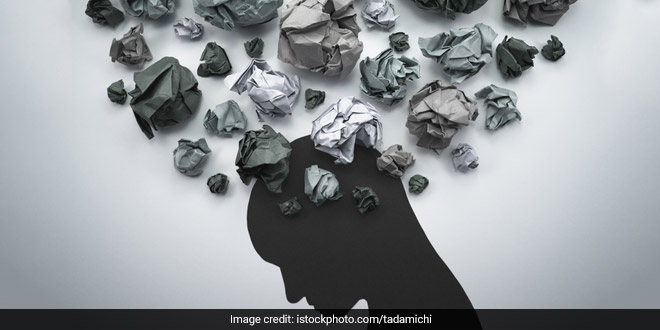Highlights
- Adults under age 35 more likely to experience psychological distress: Study
- Patients need to be encouraged to seek help, said researchers
- Strong family and social support reduces risk of psychological distress
Washington: A new study has discovered that one in every three adults, especially younger adults, women, and those of lower socioeconomic status experience psychological distress related to COVID-19. Researchers at Duke-NUS Medical School, Singapore reported in the journal ‘PLOS ONE’ that COVID-19 continues to pose serious threats to public health across the globe, and interventions such as lockdowns, quarantine, and social distancing are having an adverse impact on the mental well-being of populations. The pandemic has escalated the burden of psychological distress, including anxiety, depression, post-traumatic stress, and insomnia.
However, the factors associated with increased susceptibility to psychological distress among adults in the general population during COVID-19 are not yet well known.
“Understanding these factors is crucial for designing preventive programmes and mental health resource planning during the rapidly evolving COVID-19 outbreak,” explained Professor Tazeen Jafar, from the Health Services and Systems Research Programme at Duke-NUS, who led the study.
These factors could be used to identify populations at high risk of psychological distress so they can be offered targeted remote and in-person interventions, added Duke-NUS.
Prof Jafar and her team performed a meta-analysis of 68 studies conducted during the pandemic, encompassing 2,88,830 participants from 19 countries, to assess risk factors associated with anxiety and depression among the general population. They found that, among the people most affected by COVID-19-related anxiety or depression, women, younger adults, individuals of lower socioeconomic status, those living in rural areas, and those at high risk of COVID-19 infection were more likely to experience psychological distress. The finding that women were more likely to experience psychological distress than men is consistent with other global studies that have shown that anxiety and depression are more common in women.
The lower social status of women and less preferential access to healthcare compared to men could potentially be responsible for the exaggerated adverse psychosocial impact on women, the researchers suggested.
Also Read: Women Are Three Times Likely To Suffer Stress Than Men Due To COVID-19 Pandemic, Finds A New Study
“Thus, outreach programmes for mental health services must target women proactively.”
Younger adults aged 35 and under, were more likely to experience psychological distress than those over the age of 35. Although the reasons for this are unclear, previous studies have suggested that it might be due to younger people’s greater access to COVID-19 information through the media. This current study also confirmed that longer media exposure was associated with higher odds of anxiety and depression. Other factors associated with psychological distress included living in rural areas; lower education, lower-income, or unemployment; and being at high risk of COVID-19 infection. However, having stronger family and social support and using positive coping strategies were shown to reduce the risk of psychological distress.
Also Read: Expert Blog: COVID-19 Times And Mental Health Of Young Humans: The Role Of Adults
The general public and healthcare professionals need to be aware of the high burden of psychological distress during the pandemic as well as education on coping strategies, Prof Jafar said.
“Patients need to be encouraged to seek help, and access mental health counselling services with appropriate referrals.”
Professor Patrick Casey, Senior Vice-Dean for Research at Duke-NUS, commented,
Even with the tremendous advances on the vaccine front, the world has come to realise that the COVID-19 pandemic will be with us for the long haul. Professor Jafar’s study contributes valuable insights on the pandemic’s psychological toll on populations around the world and highlights specific groups who may benefit from additional support, whether that is from their family or a healthcare provider.
Also Read: How Yoga Can Improve Your Mental Health Especially During Coronavirus Pandemic
(Except for the headline, this story has not been edited by NDTV staff and is published from a syndicated feed.)
NDTV – Dettol Banega Swasth India campaign is an extension of the five-year-old Banega Swachh India initiative helmed by Campaign Ambassador Amitabh Bachchan. It aims to spread awareness about critical health issues facing the country. In wake of the current COVID-19 pandemic, the need for WASH (Water, Sanitation and Hygiene) is reaffirmed as handwashing is one of the ways to prevent Coronavirus infection and other diseases. The campaign highlights the importance of nutrition and healthcare for women and children to prevent maternal and child mortality, fight malnutrition, stunting, wasting, anaemia and disease prevention through vaccines. Importance of programmes like Public Distribution System (PDS), Mid-day Meal Scheme, POSHAN Abhiyan and the role of Aganwadis and ASHA workers are also covered. Only a Swachh or clean India where toilets are used and open defecation free (ODF) status achieved as part of the Swachh Bharat Abhiyan launched by Prime Minister Narendra Modi in 2014, can eradicate diseases like diahorrea and become a Swasth or healthy India. The campaign will continue to cover issues like air pollution, waste management, plastic ban, manual scavenging and sanitation workers and menstrual hygiene.
[corona_data_new]


























